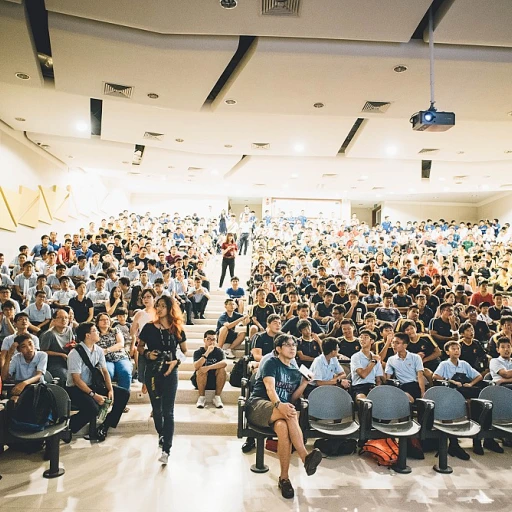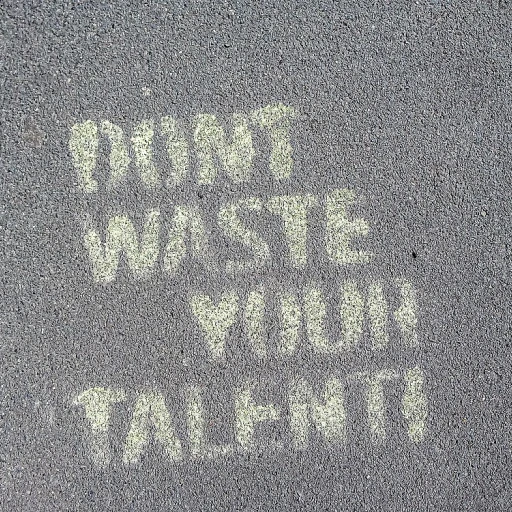
Understanding AI's Current Capabilities in Writing
Exploring AI's Writing Abilities
Artificial intelligence has made significant strides in the realm of writing, with tools like ChatGPT at the forefront. These AI systems are now capable of generating content that closely mimics human language, making them valuable assets in various writing processes, including crafting application essays. But can they truly master the art of writing compelling essays that resonate with admissions officers?
AI's current capabilities in writing are impressive, thanks to advanced natural language processing algorithms. These systems can produce essays that are coherent and well-structured, often saving students a considerable amount of time during the college application process. However, while AI can help generate content, it still struggles with capturing the authentic voice and personal touch that are crucial in personal statements and college essays.
When it comes to college admissions, the personal statement is a vital component that allows students to showcase their unique experiences and perspectives. Admissions officers look for essays that not only demonstrate writing skills but also reflect the applicant's personality and individuality. While AI can assist in organizing thoughts and improving grammar, it lacks the ability to infuse essays with the personal nuances that make them truly compelling.
Despite these limitations, AI's potential to learn and adapt to specific writing styles cannot be overlooked. With ongoing advancements, there is hope that AI will become more adept at understanding the intricacies of human expression in writing. For now, though, the role of AI in essay writing remains a supportive one, complementing rather than replacing the human touch.
For those interested in how AI is enhancing creative fields, such as graphic design, you can explore innovative applications of AI in our blog post on using Midjourney for innovative creations.
The Role of Creativity and Personal Touch in Application Essays
The Importance of Creativity and Personal Narratives
In the journey towards securing a spot in a prestigious college, application essays serve as a critical platform for students to showcase their individuality, creativity, and life experiences to admissions officers. These essays, including the well-known personal statement, are more than just a reflection of academic prowess or test scores. They offer a glimpse into a student's character, values, and unique perspectives. While AI technologies like ChatGPT hold potential in assisting with essay writing by generating ideas and structuring content, there remains a significant distinction between automated writing and the rich, nuanced narratives that humans naturally create. A college application essay requires an authentic voice that resonates with individuality and experiences only the applicant can provide. A standout college application essay needs to convey personal insights, woven into a compelling storyline that admissions officers can feel connected to. This personal touch can't be fully replicated by AI writing tools, as they primarily excel in language processing over personal storytelling. Moreover, admissions essays need to capture unique anecdotes and emotions, elements that are inherently human. The writing process for application essays is not just about the final product but also about self-reflection and growth. Crafting these essays encourages high school students to think deeply about who they are and their future aspirations. It's an opportunity for them to articulate their life's journey and aspirations uniquely. However, AI can play a supportive role by helping students brainstorm ideas and refine grammar and language, saving time in the editing process. Technology allows applicants to focus on infusing their essays with a personal touch while ensuring clarity and coherence through AI-assisted content optimization. Nonetheless, reliance solely on AI-generated content can jeopardize the authenticity and personal nature crucial for a compelling admissions essay. In light of these insights, educators and students should strive to find a balance. Human creativity and AI assistance can coexist to augment the writing process, ensuring student narratives remain genuine while benefiting from technological advancements. For more about leveraging AI's potential in various fields, including export data analysis, explore our related content.AI's Potential to Learn and Adapt to Writing Styles
Unlocking the Secrets of AI Learning in Writing
AI technology is continuously evolving, and its potential to adapt to various writing styles is a particularly intriguing aspect. When considering college admissions essays, these systems can recognize and mimic different structures and tones, making them a potentially powerful tool for students striving for excellence. As students embark on the college application process, they aim to craft content that stands out amid heaps of applications. AI, such as chatgpt, offers writing tools that assist in shaping applications to align with specific admission criteria. These systems adeptly analyze an array of college essays and generate content that reflects understood patterns. However, the ultimate challenge remains: can AI capture the authentic voice necessary for a personal statement? While AI can write and provide feedback on essays in a limited capacity, capturing the personal nuances that resonate with admissions officers still heavily relies on human intervention. This collaboration allows AI to learn from high school students' inputs, improving its effectiveness over time while maintaining the unique qualities that personal statements require. The potential for AI to support the essay writing process is vast, yet these tools must remain a supplement to human creativity. Indeed, the balance between AI assistance and human input is key to maintaining the integrity of both the content and the personal touch essential to successful college application essays. For those interested in understanding how AI is reshaping educational and professional applications, the Work-Tech Institute provides insight into these developments, shedding light on navigating work tech innovations.Ethical Considerations of Using AI in Essay Writing
Unpacking the Ethical Implications in AI Essay Writing
The integration of artificial intelligence in the realm of essay writing, especially for college application essays, raises important ethical questions. As AI tools like ChatGPT become more advanced, they are increasingly able to generate content that mimics human writing styles. However, the use of such tools in crafting application essays touches upon crucial aspects like authenticity and integrity.
College admissions officers aim to understand the authentic voice of the applicant through essays and personal statements, seeking insights into the individual's personality and experiences beyond test scores and academic achievements. AI-generated content can potentially blur the line between a student's genuine perspective and machine-produced responses, which may compromise the intent of the admissions process.
Moreover, students utilizing AI tools must consider whether the generated content truly reflects their personal experiences and aspirations. Ethically, it is imperative for individuals to ensure that their application materials convey their own stories and insights, rather than relying solely on AI-generated prose that could misrepresent their unique qualities.
The application process is designed to assess a student's potential and fit for a specific college. Leveraging AI to enhance writing skills is not inherently unethical, but the use of AI to entirely substitute a candidate's personal expression raises significant dilemmas. The challenge lies in finding a balance where AI serves as a supportive tool without overshadowing the student's genuine input.
Ultimately, while AI can provide assistance through writing tools that help students refine their language skills, it remains vital for the application essay to be a genuine representation of the applicant's voice and experiences. This ensures that the college admissions process continues to value human creativity and individuality, even as technology progresses.
The Future of AI in Educational and Professional Applications
Projecting AI's Transformative Impact on Education
The evolution of artificial intelligence holds the promise of significantly influencing educational tools and processes. In the context of college applications, AI technology continues to gain momentum, offering writing tools that assist students in crafting their essays. These tools don't just generate content; they interact with students, providing sentence suggestions and helping shape ideas whilst maintaining the student's authentic voice. AI-powered solutions such as chatbots can facilitate the essay writing process by suggesting ideas that align with students' personal narratives. This allows future applicants to focus on demonstrating their unique experiences without getting overwhelmed by the intricacies of language. Offering specific language and structural recommendations ensures that the students are able to prepare persuasive college essays more efficiently. When incorporated responsibly, AI tools might streamline the application process by reducing the time it takes to write, thus giving students more room to polish other aspects of their college application, like personal statements and admissions essay. The potential for AI to support students also extends to creating opportunities for personalized learning and feedback loops that would be otherwise impossible with manual review alone. It is also worth noting the importance of ensuring that AI's role in education remains complementary to human touch. As students and educators explore these technological advancements, emphasizing the balance between AI-assistance and personal input will be crucial to the productivity of digital education tools. By integrating AI thoughtfully, future innovations hold the promise of transforming traditional college admissions processes, optimizing how students present their ideas, and assisting admissions officers in evaluating them more effectively.Balancing AI Assistance with Human Input
Finding the Right Balance Between AI and Human Contribution
As artificial intelligence becomes a noteworthy player in the college admissions landscape, the challenge lies in finding a balance between the efficiency of AI tools and the irreplaceable human element in crafting personal statements. While AI platforms like ChatGPT offer assistance by generating content, students should ensure their essays reflect their personal stories and authentic voices.
One of the ways AI can be a helpful asset in the writing process is through time-saving strategies. Students often face tight deadlines during the college application process. AI tools can assist by generating preliminary drafts or providing insights into language usage. However, the ultimate goal is to refine these drafts into pieces that are genuinely representative of the applicant's experiences and aspirations.
Admissions officers are trained to detect essays that lack a personal touch. While AI-generated content can mimic natural language patterns, it cannot replicate the genuine enthusiasm, challenges, and growth that students undergo during high school. Therefore, integrating AI assistance in essay writing should not replace the individual's creative contribution but rather supplement it.
Students should also be aware of the ethical implications associated with relying too heavily on AI. Admissions essays are designed to offer a glimpse into the applicant's character, beyond test scores and academic achievements. Utilizing AI-generated content without in-depth personal revision risks misrepresenting the true spirit of the applicant.
Ultimately, while AI can streamline certain aspects of essay writing, the responsibility remains with the students to ensure their college essays are a reflection of their true selves. Striking the right balance between using AI tools and maintaining personal integrity will likely become a valuable skill, as the boundaries between technology and human creativity continue to blur.













